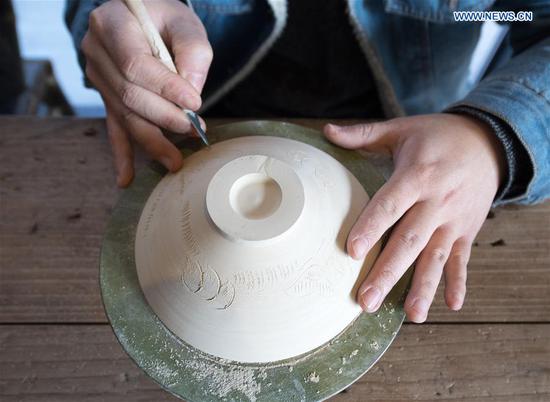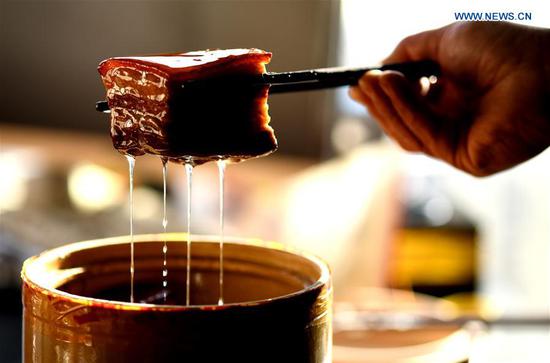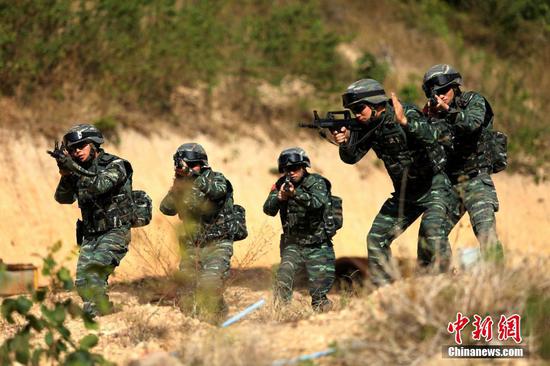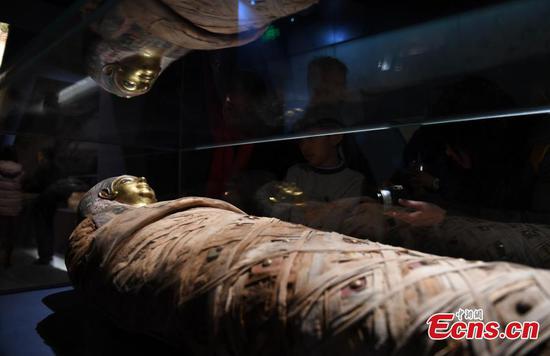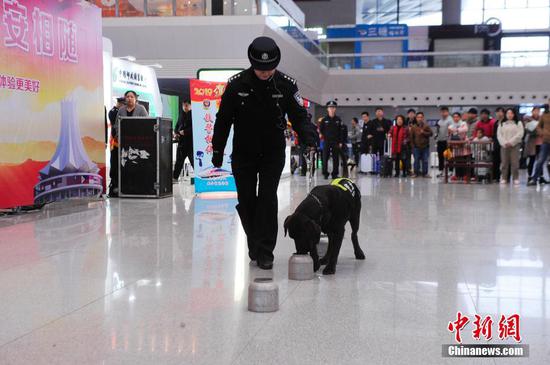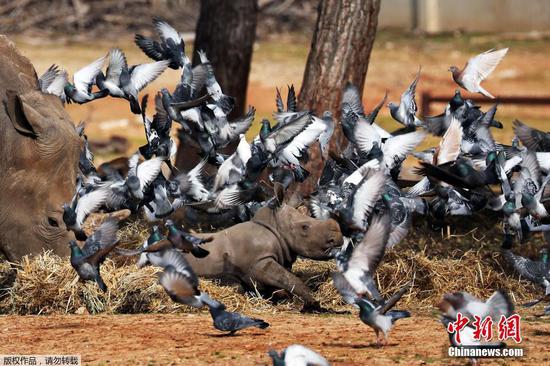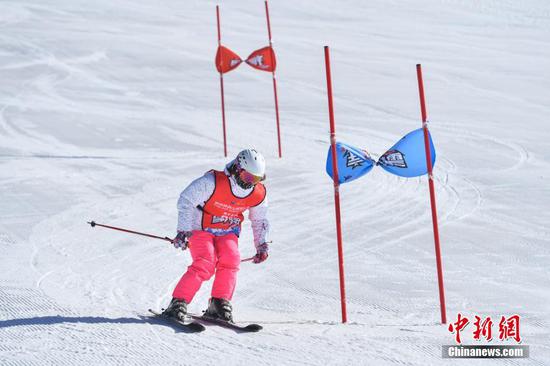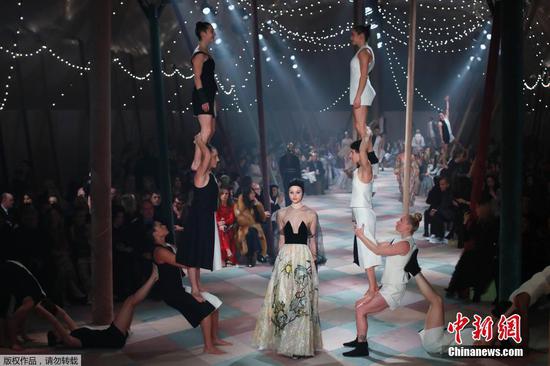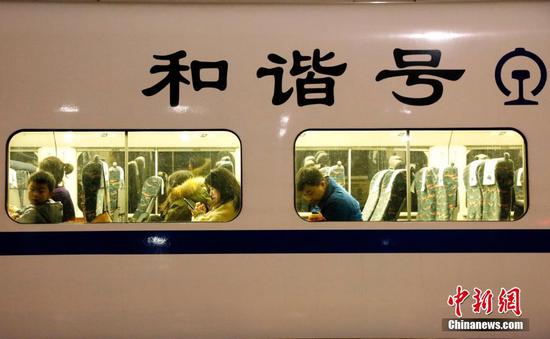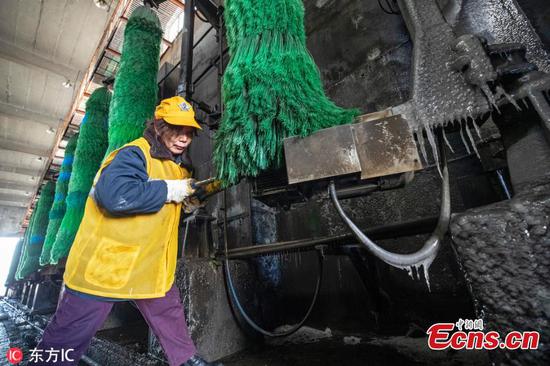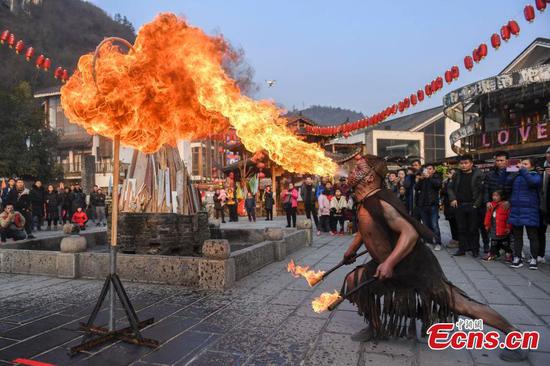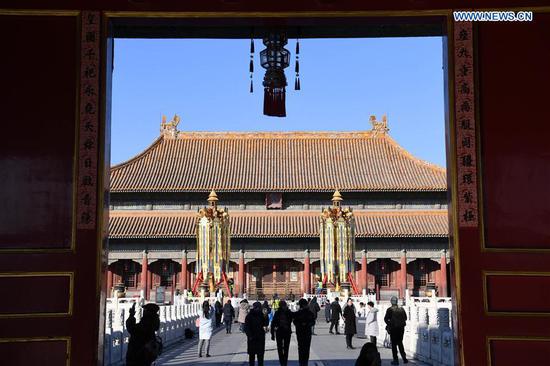
A father waits for his child outside a classroom for extracurricular study at 9 p.m. in Nanjing. (LI XIANG/XINHUA)
New survival methods
However, despite what many experts have called the "toughest-ever crackdown" on after-school education, these classes have not gone away. Indeed, many of the providers have simply found new ways to survive.
"If the inspectors come, we tell them we are teaching students how to paint," said Wang Jun, head of a small institution in the Haidian-Huangzhuang area in western Beijing that offers extracurricular tutoring in Chinese.
The area, which is close to several renowned high schools, including the High School Affiliated to Renmin University of China and Beijing Bayi School, and prestigious universities, such as Tsinghua and PKU, is home to many after-school establishments that offer intensive tuition to raise students' grades.
Wang conceded that his establishment, which is not certified, does not meet national standards. However, the government's regulation focuses on classes related to core academic subjects, such as math, Chinese and English. That means as long as Wang pretends his establishment only teaches art, the inspectors are unlikely to delve deeper.
To bolster the illusion, he has hung paintings and examples of calligraphy on the walls, and every desk is equipped with a set of paintbrushes. When inspectors visit, there are no textbooks in the classroom so it appears the that students are attending art classes, he said.
However, when the inspectors leave, the teachers return to teaching Chinese, he added.
Wen Zhe started attending classes for the National Mathematical Olympiad at a different after-school establishment in Haidian-huangzhuang when he was in the first grade.
His mother would pick him up after school and they would take a 40-minute subway ride to the area. After a quick dinner, Wen would attend classes for around three hours before he and his mother went home at 9 pm.
The 14-year-old, who is now in the eighth grade, repeated this routine most days for eight years, until the establishment was closed by the authorities in November because it was discovered to be teaching advanced topics to the students.
"I have no interest in the Olympiad, but my mother knows that if I can win a gold medal at the National Mathematical Olympiad, it will give me an advantage over students so I can attend a good high school and university," Wen said.
As a result, when the institution was closed down, he and four other students in the class began online tuition via videoconferencing technology in a WeChat group.
Wen no longer spends hours traveling back and forth, but he said the online classes are not as effective as one-on-one tuition.
"I am not a big fan of the government's policies to reduce students' academic burdens, because there are only a limited number of good universities, which means only those who have studied hard can be admitted," he said.
"When the crackdown becomes less intense in the future, I hope I can go back to the training institution because it has become my second school."












